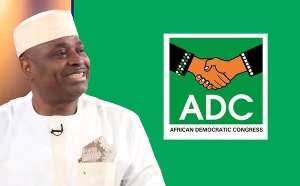The ongoing Liquefied Petroleum Gas (LPG), commonly known as cooking gas, shortage has been largely attributed to the activities of middlemen and neighborhood retailers.
Over the past few weeks, the country has faced a severe shortfall in LPG supply, causing prices to surge significantly.
Legit.ng earlier reported that families in Lagos, Ogun, and several other major cities were grappling with an acute shortage of cooking gas, with prices soaring by more than 80%.
This situation has been exacerbated by opportunistic actors within the supply chain who exploit the scarcity for personal gain.
During a recent investigation, Daily Sun uncovered how certain cartels are inflating prices by deliberately hoarding LPG.
These groups purchase large volumes in 50kg cylinders from gas plants and then resell them to smaller retailers at much higher rates.
Further inquiry revealed that many of these so-called marketers operate without formal business registrations or permanent shops.
Instead, they travel between different gas plants, buying LPG at cheaper rates and reselling it quickly at a markup. An employee at a major gas plant in Fagba, Iju Ishaga area of Lagos, identified only as Lekan, disclosed that at the peak of the crisis, they sold gas to consumers at N1,300 per kilogram, while bulk buyers got it at N1,200.
He said:
“But at a point, we discovered that the number of bulk buyers outweigh that of end users, a development that forced us to reduce the volumes we were selling to them to enable us service our end user clients.”
The Daily Sun investigation also found that middlemen were profiting by as much as N1,800 per kilogram along the distribution chain.
For instance, while they bought at N1,200/kg, they sold to retailers at N1,700/kg. These retailers, in turn, charged end-users between N2,500 and N3,000 per kilogram.
In some cases, these intermediaries were allegedly working with gas plant attendants who gave them preferential treatment in exchange for a share of their profits.
However, the National President of the Liquefied Petroleum Gas Retailers Association (LPGAR), a branch of NUPENG, Mr. Ayobami Olarinoye, rejected claims implicating retailers.
Speaking with The Sun over the phone, he described the accusations as an attempt to tarnish the reputation of licensed sellers.
Olarinoye emphasized that the LPG market is deregulated, meaning price fluctuations are expected. He explained that Category D operators, retailers, are only permitted to obtain their supply from registered gas plants.
He said:
“However, in cases where cooking gas plants refuse to sell to us but prefer to sell to end users because of additional profit, we are then forced to source products from third parties, which comes at a premium.”
He urged the federal government to ensure consistent availability of LPG to prevent future shortages and stabilize prices for consumers.
The FG has responded, taking proactive measures to forestall further scarcity nationwide by ordering a clampdown on marketers and retailers hoarding or exploiting consumers.
Business News of Tuesday, 21 October 2025
Source: www.legit.ng













